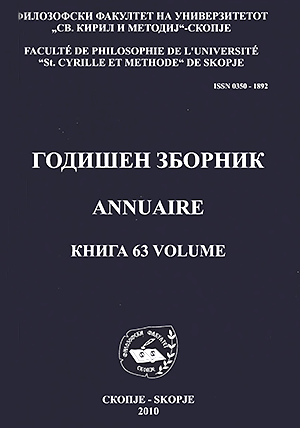CONCEPTIONS OF CRITICAL THINKING
DOI:
https://doi.org/10.37510/Keywords:
CRITICAL THINKING, CONCEPTIONS, ABILITY, GLASER, ENNIS, KVASCHEV, MEYERS, GARRISONAbstract
This article deals with the definition and understanding of critical thinking as a complex phenomenon. Several theories of intellectual abilities are analyzed to show that intelligence contains or implies critical dimension. Further, for the purpose of obtaining the more complete insight, five representative conceptions of critical thinking are also presented.
The comparative analysis shows similarities and differences among the authors regarding nature and genesis of critical thinking. For Glaser, Ennis and Kvaschev critical thinking is general capability of performing and applying logical operations; it is the skill of thinking which is independent of any specific content or task. In contrast to above mentioned authors, Meyers emphasizes that critical thinking is always connected to certain specific contents and it is influenced by them. In comparison with the previous two approaches, the conception of Garrison is moderate one. He tries to reconcile general and particular, skill and knowledge, form and content, because critical thinking is the general skill which is realized with the aid of specific knowledge. Education needs critical thinking and critical thinking needs education.
Despite differences, these authors agree that critical thinking is important for individual and social development, as well as that it should be stimulated during the process of education.
References
Downloads
Published
Issue
Section
License
Copyright (c) 2010 Elena Achkovska Leshkovska

This work is licensed under a Creative Commons Attribution 4.0 International License.





